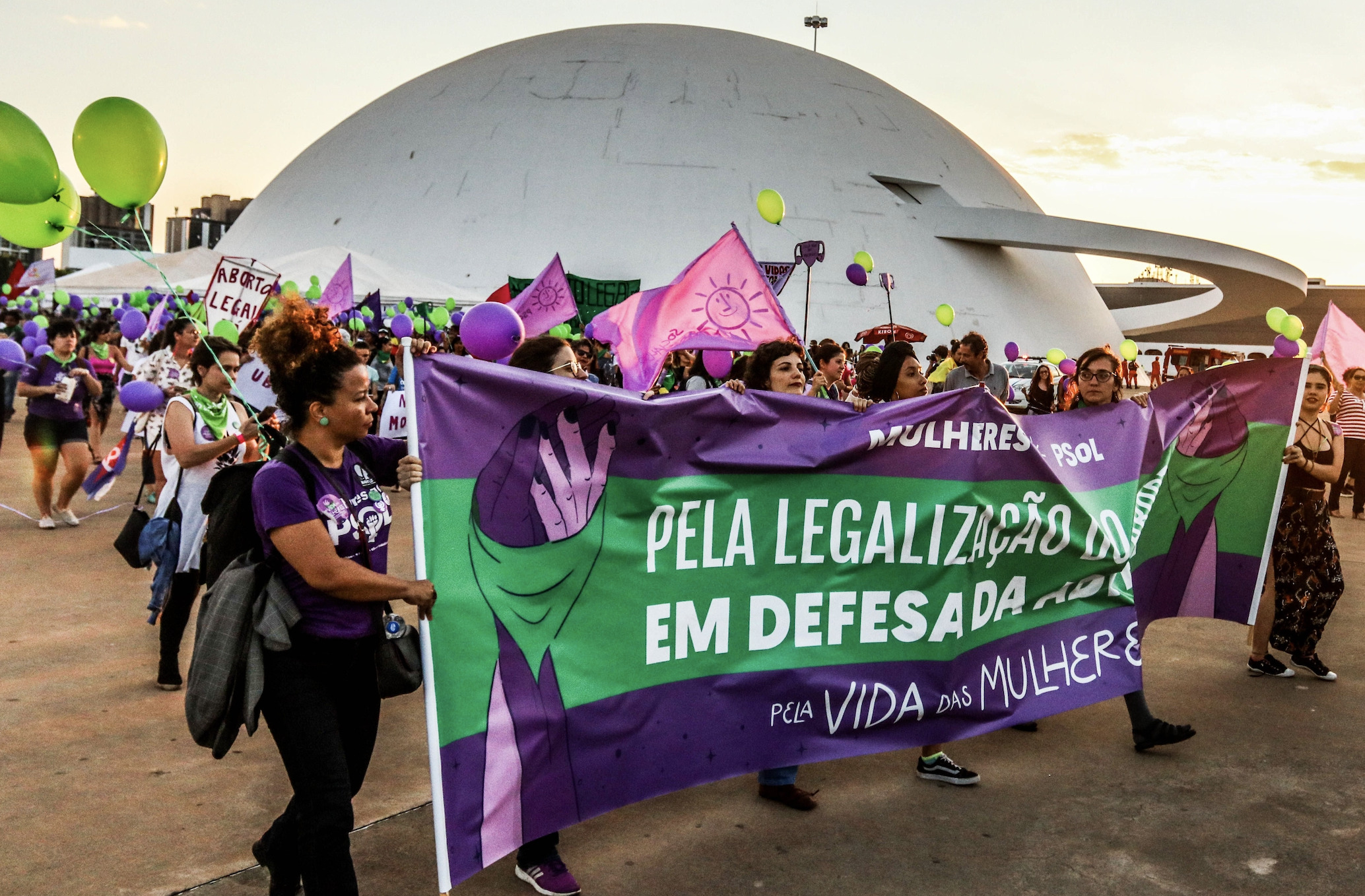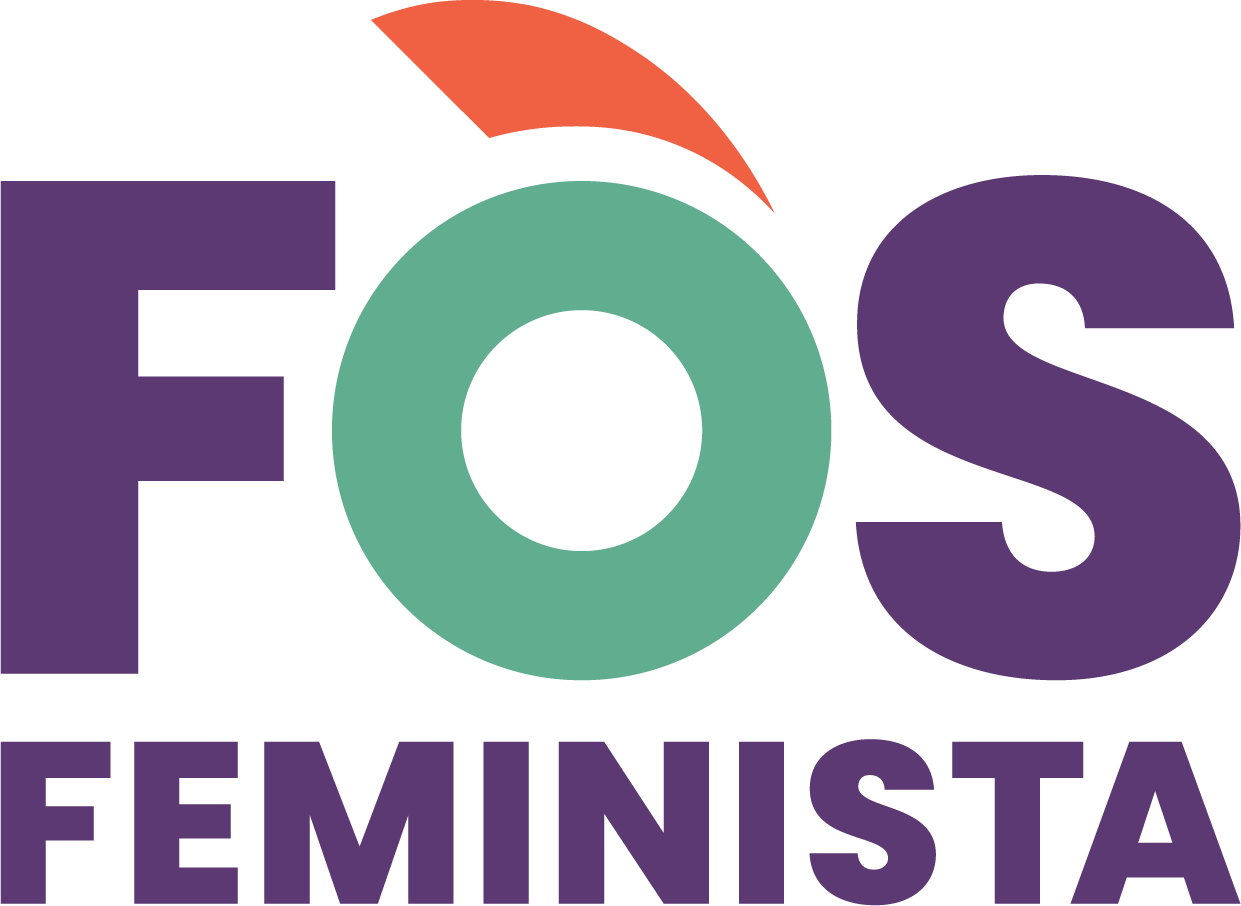
Feminist activists march to demand safe and legal abortion during the Festival for Women’s Lives in Brasilia, 2018. CREDIT: Arthur Menescal
Justices of the Court to vote on a lawsuit presented by civil society organizations, including one of Fòs Feminista partners.
NEW YORK, NY — On September 22, 2023, Brazil’s Supreme Court began voting on a lawsuit seeking to decriminalize abortion up to 12 weeks of gestation. The president of the Court, Rosa Weber, gave the green light on September 19 to initiate the voting, a process that may take several weeks or even months. Justice Weber, whose retirement from the court is imminent, cast her vote today in favor of decriminalization.
Currently abortion is only legal when someone has been a victim of sexual violence, when their life is in danger, or when a fetus has anencephaly. Statistics show that the current state of criminalization has not decreased abortions in Brazil: according to the 2021 National Abortion Survey, there is one abortion every minute—1,369 per day, or 500,000 per year. Between 2014 and 2022, 2,758 women were criminally prosecuted for having an abortion in Brazil, according to the National Council of Justice.
If the majority of the Court’s justices vote in favor, abortion will be decriminalized up to 12 weeks, which would bring Brazil in line with elsewhere in the region where abortion is legal, including Cuba, Puerto Rico, Uruguay, Argentina, Colombia and Mexico. Unsafe abortion is a public health problem that exacerbates existing inequalities and particularly hurts young Black women, according to a recent survey conducted by the University of Brasilia.
Feminist organizations, led by our partner ANIS, won’t stop until reproductive rights are expanded in Brazil so all women, girls, and gender-diverse people can make decisions about their own bodies and their own lives. Legal and safe abortion is a health need and should therefore be taken care of by health policies and not controlled by criminal laws.
Gabriela Rondon and Luciana Brito, co-directors of ANIS, said the following in response to the justice’s decision:
“Justice Weber’s opinion is a milestone for the understanding of sexual and reproductive rights as human rights, not only for Brazil, but internationally. We hope that this vote marks a new chapter in the history of protecting the rights of women, girls and people who can become pregnant in the Americas.”
Following the filing of this case in 2017, feminist movements efforts to organize and mobilize have increased. At the Festival For Women’s Lives in 2018, held during the Court’s public hearing on the case, Brazilian feminists took up the now world-famous green bandanas as a symbol of solidarity with Argentinian activists and showed the world that Brazil was joining the Green Wave.
In response to this historic moment at the Brazilian Supreme Court, Giselle Carino, Chief Executive Officer of Fòs Feminista, an international feminist alliance, issued the following statement:
“Our ecosystem of feminist partners continues to work tirelessly to demonstrate the harmful impacts of abortion criminalization on women, girls and gender-diverse people. We are grateful for ANIS’s leadership in bringing this case to the Court and also recognize important contributions from CEPIA, Catolicas pelo Direito de Decidir, Nem Presa Nem Morta, and Curumim, among others.
“Fòs Feminista is confident that Brazil’s Court justices will rule in support of the rights to health and life for all Brazilians, and we are working closely with our partners to make this possible. This case has now been pending for six years, which means that at least 3 million women have had to resort to a potentially unsafe abortion while waiting for the Supreme Court to protect their rights. Brazilian women and girls should not be made to wait one day longer.
“This case represents an important opportunity for the Brazilian Court to show that they are in harmony with international agreement regarding the legitimacy of courts to decide on abortion cases. Colombia and Mexico are recent examples that have shown how, in democratic republics, it is up to the courts to protect fundamental rights that are under threat. The right to abortion is consistent with the right to health, life, gender and racial equality, and to be free from torture.”
The Brazilian vote to decriminalize abortion is part of the rising Green Wave for reproductive rights that is sweeping Latin America and the Caribbean. The Green Wave emerged in Argentina as diverse civil society groups coalesced around the demand to decriminalize abortion, culminating in the passage of legislation in December 2020 that allowed people to terminate their pregnancies during the first trimester.
The rise of the Green Wave stands in stark contrast to events in the United States, where the Supreme Court has gutted the constitutional right to abortion and attempted to ban medication that has safely been used to manage and end pregnancies.
###
Fòs Feminista is an international feminist alliance centered around sexual and reproductive health, rights, and justice for women, girls, and gender-diverse people. Together with more than 200 local organizations across the globe, we engage in healthcare, education, and advocacy to advance our agenda. This includes providing sexual and reproductive health services and implementing community-based strategies that make sexual and reproductive healthcare more accessible to women, girls, and others at the margins. We also engage young people with comprehensive sexuality education and provide care to survivors of gender-based violence. We stand alongside our partners in the streets, in the courts, and in other advocacy spaces as an unapologetically feminist voice, resisting injustice and advocating for gender equality and reproductive rights locally and globally.






